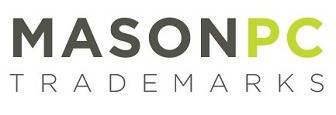The Canadian Trademarks Opposition Board (the “TMOB”) has officially declared that a claim of depreciation of goodwill, can serve as a valid ground of opposition in trademark opposition proceedings.
On October 5, 2020, the TMOB released a ground-breaking decision in the case of McDonald’s Corporation and McDonald’s Restaurants of Canada Limited v Hi-Star Franchise Systems, Inc. In this case, the TMOB refused an application by Hi-Star Franchise Systems, Inc. (Hi-Star) to register the trademark “McMORTGAGE” on grounds that, inter-alia, it depreciated the value of the goodwill in McDonald’s suite of “Mc” formative trademarks.
This is the first conclusive pronouncement in Canadian jurisprudence acknowledging “depreciation of goodwill” as a valid ground of opposition in trademark proceedings.
The depreciation remedy is codified in section 22 of the Canadian Trademarks Act (the “Act”) and is normally brought by way of enforcement actions. It is prohibitive of any use of a registered trademark in a manner that is likely to depreciate the value of goodwill attaching thereto.
In Canada, unlike other jurisdictions, there is no requirement that the registered trademark in question be famous or even well-known. That said, the section 22 depreciation remedy presupposes the existence of significant goodwill in the registered trademark. Afterall, there must be something capable of depreciation.
The courts have noted the paucity of judicial attention that this remedy has received. In cases of confusing trademark use, the preferred recourse seems to fall in trademark infringement grounded in section 20 of the Act. Equally, where there is no confusion, claimants may have shied away from the depreciation remedy as it can be a difficult ground to prove.
Hi-Star applied to register the trademark “McMORTGAGE” in association with real estate and mortgage brokerage services. McDonald’s Corporation and McDonald’s Restaurants of Canada Limited (collectively, McDonalds), opposed Hi-Star’s trademark application on several grounds, one being, that Hi-Star’s use of its “McMORTGAGE” trademark depreciated the value of the goodwill in its registered trademarks.
McDonald’s is a famous fast-food chain and is the owner of a large number of trademarks featuring the prefix “Mc” or “Mac” in Canada eg. McDONALDS, BIG MAC, MCCHICKEN, McCAFE, MCNUGGETS, MCFLURRY and MCMUFFIN.
In considering this ground, the TMOB noted that neither the Registrar nor the Federal Court had ever ruled on whether a section 22 infraction could ground an opposition. It then went on to discuss section 30(i) of the Trademarks Act, which requires a trademark applicant to declare itself satisfied of entitlement to use the applied-for trademark in Canada. A ground of opposition arises if an applicant is not so entitled.
In true ground-breaking style, the TMOB held for the first time that an opposition, based on section 30(i) of the Act (i.e. that the applicant is not entitled to use the trademark), can be premised on the section 22 likelihood of depreciation ground. In other words, if use of a mark applied-for is likely to have the effect of depreciating the value of the goodwill in a registered mark, then the trademark applicant is not entitled to use the applied-for mark in Canada.
As circuitous as it may be, the TMOB effectively ruled that a section 22 violation can be a valid ground of opposition. It then went on to consider the four elements required to prove a section 22 violation on the facts of the case:
- Use of McDonald’s registered trademarks – the construction of the “McMORTGAGE” trademark was deemed to be sufficiently similar to McDonald’s “MCFLURRY”, “MCNUGGETS”, “MCCHICKEN”, “MCDONALD’S” and “MCMUFFIN” trademarks. The TMOB formed the view that the structure of the “MCMORTGAGE” mark was so closely akin to McDonald’s trademarks that it would be understood to be one of them.
- Sufficiently well-know to have significant goodwill – McDonald’s provided evidence of extensive use of its “Mc” formative trademarks across Canada. The TMOB found that the trademarks were famous and sufficiently well known to have garnered significant goodwill in Canada.
- Linkage – The TMOB found that there was likely to be a linkage, association, or mental connection in the minds of consumers between the two marks, due to the similarity in construction, and the extent of the goodwill associated with the McDonald’s trademarks.
- Damage – Damage was inferred from the likelihood of a “whittling away” of the McDonald’s brand power to distinguish its products. The TMOB noted that there was no apparent reason for Hi-Star to adopt and use the McMORTGAGE trademark other than to trade off the goodwill and reputation established by McDonalds.
In the end, the TMOB found that McDonald’s had met its evidentiary burden, of raising a prima facie case that use of the McMORTGAGE trademark would depreciate the value of the goodwill in its registered trademarks.
Interestingly the TMOB noted that Hi-Star did not participate in the proceedings and indicated that the outcome might have been different if it had filed evidence and made submissions. Submissions and evidence particularly on the matters of linkage (i.e whether consumers are likely to link McMORTGAGE to McDonald’s) and whether there was any depreciation or likelihood of depreciation to McDonald’s trademarks might have been material.


